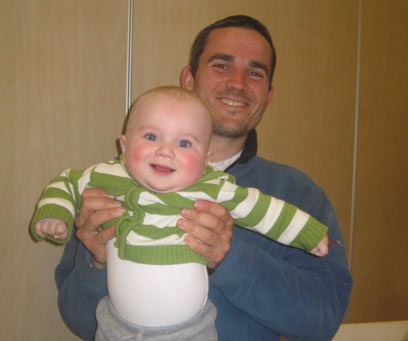When Rocks Kill
On September 23, 2011, Asher Palmer, 25, was driving with his infant son, Yonatan, on Route 60 near Kiryat Arba. He was headed towards Jerusalem to visit his pregnant wife. Driving in the opposite direction was former Palestinian Authority security officer Waal al-Arjeh and his accomplice Ali Saadeh. As they crossed paths, al-Arjeh hurled a large rock that pierced the windshield of Asher’s car, hitting him in the head and causing the car to crash on the side of the road. Asher and his son died upon impact.
![]()

This week, over a year and half after the incident, justice was finally served. Waal al-Arjeh was convicted of murder for the deaths of Asher and Yonatan in a military court. Among the counts against him were two counts of manslaughter, 22 counts of attempted manslaughter and three counts of hurling objects at moving vehicles. This historic ruling is unique – it is the first time a person has been convicted of murder for stone throwing and this could set the precedent for cases in the future.
In 1999, the Tel Aviv District Court ruled that damage caused by rocks thrown at a vehicle is considered a hate crime, not a traffic accident. Rock throwing may seem harmless, but rocks can kill. If we ignore rock throwing, we potentially encourage even more severe hate crimes and higher-scale terror attacks.
Rock throwing is common in Judea and Samaria, and along with Molotov Cocktail and burning tires, is a terror act that comes under the definition of ‘popular terror’. These incidents occur daily, and are easily ignored by the mainstream media. In 2012 over 4,370 stones were hurled at Israeli citizens and 1,195 already in 2013.
Imagine if this were heading towards your windshield next time you were driving.

